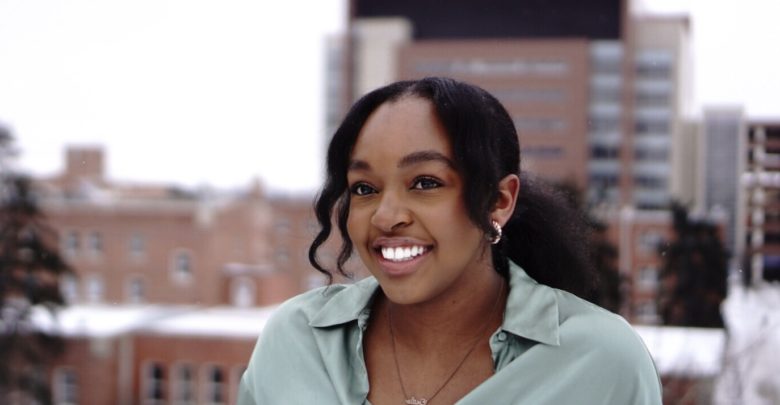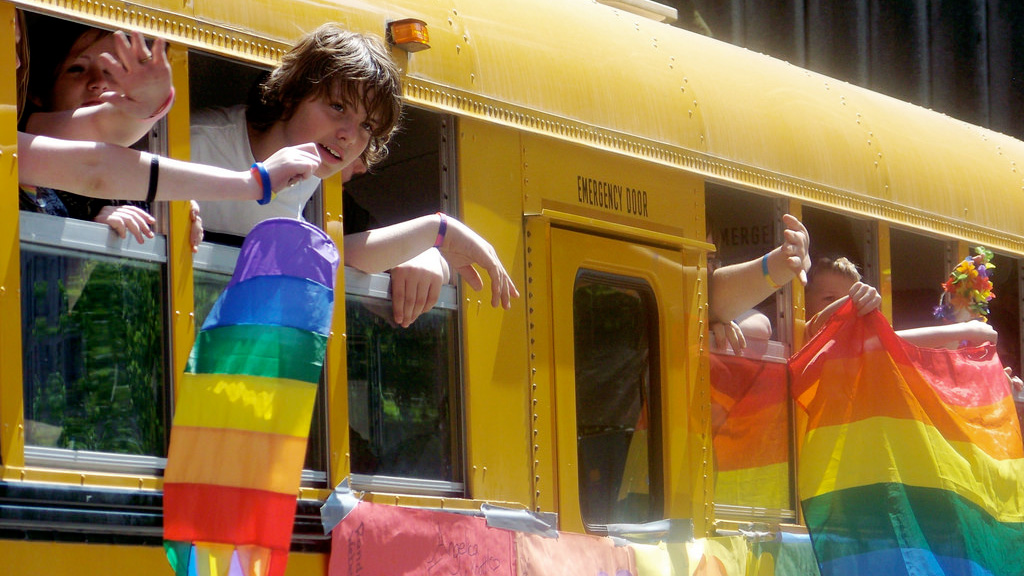 Pia Co
Pia CoEach year, The Gateway publishes an evaluation of the Students’ Union Executive and the Board of Governors representative. It’s impossible to discuss every aspect of their tenures, so these reports are largely based on the major components of the platform each executive campaigned on, and the most significant responsibilities of their respective positions.
And if you’re short for time, check out our TLDR for a bite-sized breakdown.
Emily Kimani: B-
The vice-president (operations and finance) is responsible for overseeing the $13 million budget of the Students’ Union (UASU) and their on-campus businesses like the Daily Grind, RATT, and Dewey’s. They also oversee the operations of the Students’ Union Building (SUB), Dedicated Fee Units (DFUs), and the Sustainability and Capital Fund (SCF).
Bringing Black History Month to the UASU and some successes in sustainability
Emily Kimani told me that the thing she was most proud of achieving during her term was bringing a Black History Month event to the UASU. There was clearly a lot of thought put into this month with a speaker series, social media campaign about notable Black alumni through history, and the development of a new UASU award for Black students who show strong community leadership — the Violet King award.
Another one of her platform points was bringing a bulk foods section to SUB Mart. Kimani has planned a “soft launch” for the end of February, with things ramping up as students come back in person. This is the second year that the bulk foods section has been a promise for someone in this role. I’m not convinced this will be worth the wait and that this service will be widely used by students, but I am glad that this will finally be followed through on.
Kimani oversaw the Myer Horowitz theatre renovations this year which has hit multiple hiccups after finding asbestos around the food court. They have since closed sections of the food court to remove the asbestos. Kimani says this was something they had expected, so the sustainability goals are still going ahead as planned.
“Nothing can change in terms of the design and the sustainability improvements that we were promising students because students voted for this,” she told me. I am glad to hear that the goals of the renovation have not been set aside, because in addition to voting for it, students have also paid an expensive fee to cover the cost.
Another win for Kimani was achieving her platform promise of renewing Empower Me, an online mental health service and taking it a step further by integrating it into the health and dental plan with no additional cost. This means that the service will not have to be renewed in future years.
Shortcomings show themselves in unmet promises and a lack of communication
The menstrual product dispensers were a collaborative project for Kimani and Talia Dixon, vice-president (student life). They are a huge win for students who menstruate on campus. However, no secure source of funding has been acquired for this program — one of Kimani’s main goals. They did get some one-time funding from the university, but Kimani failed to acquire anything long-term that would ensure this project can continue. This is looking like a burden that will be passed onto whoever comes into the role next.
The second aspect of the Sustainability and Capital Fund (SCF) is money dedicated towards funding student-led green projects. The thousands of dollars set aside for the SCF Green Fund however, is apparently just sitting there — no projects have been approved this year. “Unfortunately we didn’t approve any just because we didn’t feel like any of the projects fit the mandate of the fund,” she said. There is no shortage of innovative ideas on our campus; the fact that there has been a lack of appropriate project applications means this opportunity is not being well advertised. Only recently have I seen a push of advertising about this fund but this should have been happening all year.
Another goal for Kimani on the sustainability side of things was to reduce waste for the food vendors in SUB. Specifically, her platform mentions eliminating plastic wrap at the Daily Grind; however, this failed to materialize, Kimani explained, because there are no sustainable alternatives to plastic wrap available in bulk.
“We were trying to find a sustainable alternative to plastic wrap; we searched and researched for months, but it’s just not a thing right now — I guess, people just haven’t created one.”
Even Tim Hortons manages to serve most of their baking items in a paper bag, not plastic, so I don’t know how convincing the idea that no feasible alternative exists is. I understand the Students’ Union cannot probably use silicone bags or beeswax paper, but paper bags or parchment paper are cost effective options that are pretty foolproof; baked goods were sold in them before the invention of plastic wrap. Besides the incoming bulk foods section at SUB Mart — an idea from a previous year — Kimani has not made any major new contributions to sustainability in SUB.
Another promise of Kimani’s was to secure an office space for the International Students Association (ISA). While a space was secured in HUB mall, it somehow fell through.
“Unfortunately there was a miscommunication with the university and the space optimization and so that space was no longer available,” Kimani said.
While this is something that she is working to correct hopefully before her term ends, there is not much time left and this is shaping up to be a failed promise.
Talking with Kimani, I was surprised that a lot of what she mentioned was news to me. As someone who is relatively engaged in campus happenings, the fact that I knew very little about what Kimani had been working on demonstrates that her general outreach could’ve been much stronger. There should have been more updates to the student body about the work she was doing, the opportunities offered by the Students’ Union like the SFC Green Fund, and updates about finding asbestos in SUB.
TLDR: Kimani made her mark this year by bringing Black History Month to the Students’ Union for the first time. She followed through on a few of her platform points but has failed to do so in some notable areas such as acquiring long-term funding for the menstrual product dispensers and securing a space for the ISA. Her term has been good, but not groundbreaking.
A-range: This person has fulfilled the promises they campaigned on and more, has created tangible change during their tenure, and has shown a commitment to improving the lives of students. Their GPA is top tier.
B-range: This person has done their job consistently well, but has not made any remarkable changes, or has fallen short on important goals they set out in their platforms. They’re doing fine, but it’s nothing to phone home about.
C-range: This person has done their job sufficiently, but has failed to make significant progress in the areas most relevant to their portfolio, or has essentially abandoned a major part of their platform. They’re still passing with a safe buffer though, and Cs get degrees!
D-range: This person has done a very lacklustre job, and has not sufficiently fulfilled their campaign promises or the responsibilities of their position.
F-range: This person has not done their job, has not represented students, and has not fulfilled their campaign promises whatsoever.




